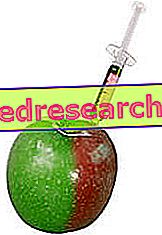Generality
The mythomania is a psychopathological manifestation characterized by the recurring need to distort reality, intentionally elaborating fictitious scenarios that are not likely.

- Hide their weaknesses from others;
- Protect yourself from the judgment of others;
- Increase one's self-esteem;
- Arousing admiration, esteem or compassion in other people.
Another recurrent attitude among mythomaniacs is the tendency to exaggerate and to boast of their abilities, performances or experiences.
Over time, the habit of lying can evolve into a personality disorder, as the author ends up believing what he invents.
The causes of mythomania can often be found in painful memories of loss or failure, too high expectations of friends or parents or other such negative events that they are impossible to accept for the person who lived them. Certain environmental stimuli and biological-genetic factors can also contribute to the disorder.
Frequently, the typical attitudes of mythomania are established as a kind of barrier with which to hide frailties and prevent others from taking advantage of this weakness. If pressed by the doubts of others or by real difficulties, such as requests for services inherent to its particular exceptionality, the mythomaniac must learn to deceive. This solution is not, however, infallible: the refutation of lies and the confrontation with reality can demolish the vision of superiority of the mythomane, which can have a depressive collapse.
A useful approach to overcoming the disorder is cognitive-behavioral psychotherapy, which allows one to go back to the causes of behavior and to modify them. The condition can also benefit from drug therapies based on anxiolytics, antidepressants (SSRIs) and / or mood stabilizers.
Mitomania: what is it?
Also called fantastic pseudology, mythomania is a psychological disorder that leads to manipulating the truth and to lying in a pathological and continuous way .
A mythomaniac person creates situations and events by adding his own, depending on what he believes.
In addition to the recurring need to lie, mythomania is also characterized by the tendency to boast of one's abilities to prove one's superiority. In a sense, therefore, the disorder is a variant of megalomania .
The peculiar traits with which mythomania is presented are, therefore, invention and exaggeration .
- The habit of telling lies compulsively can develop from childhood: many children have difficulty coping with some frustrations and end up, to a certain extent, lying to their parents for fear of disappointing their expectations, to try to preserve your own image or to avoid a punishment. This phenomenon becomes a pathological character when the child (or the adult) prone to mythomania finds that the lie can be understood as truth, without associated negative consequences.
On the other hand, a feeling of pleasure and power can easily lead to repeating the same behavior. For example, when colleagues find interest in fictitious and imaginative fictional stories reported by the mythomaniac, this begins to feel accepted and, consequently, invents increasingly incredible lies. This results in the habit of repeating the behavior, even without a specific purpose.
Therefore, the mythomaniacs enter a vicious cycle built on lies to respond to expectations and to feel up to it, ending up confusing fantasy and reality .
Difference between mythomania and megalomania
Megalomania and mythomania are two conditions united by the conviction of being superior to others.
- The distinctive feature of megalomania is the exaggerated appreciation of self : the subject typically assumes attitudes of superiority, tends to excel and undertakes to carry out disproportionate tasks with respect to his own strength (obtaining a series of more or less negative consequences). Megalomania is, therefore, an expression of a pathological desire to feel worthy of admiration in the eyes of the people with whom relationships are established.
- The mythomania is the pathological tendency to manipulate the truth in order to obtain a psychological exaltation of the self, through the habitual, prolonged and repeated production of lies. Unlike the megalomaniac who needs to continually put his plans to the test, the mythomaniac avoids exposing himself to the possible impact with real life - which can be disappointing and lead to depressive collapse - by devising fantasies and deceiving other people. The habit of lying can evolve into an alteration of the personality, since the author himself ends up believing what he invents.
The fate of the mythomaniac is identical to that of the megalomaniac : exaltation of self gives way to depression and the consequences of its conduct.
Possible causes
In psychiatry, mythomania is a condition characterized by the habitual use of lies . This attitude can concern the most disparate events or topics (for example: different places, gallant adventures, sexual performances, unlikely situations, etc.), sometimes amplified to reach very high degrees of true-similarity .
The mythomania is considered a direct product of the imagination : therefore it does not depend on memory deficits and should not be confused with confabulations.
At the base of mythomania, there is an intentional and deliberate act of making false statements in order to avoid exposing oneself to the disappointing impact with real life. This phenomenon can progressively interfere with the normal rational process.
Generally, lies are not used to obtain a gain from a material point of view or any social advantage, but to justify one's own greatness. Often the patient makes the experiences he invents from scratch; his mind elaborates memories as if they were really lived moments.
The causes of mythomania are multifactorial and not always easily identifiable. Often, the disorder is related to a condition of low self-esteem and profound insecurity : the mythomaniac discovers, generally since childhood, the devastating power of criticism. These can be directed by parents or other people who are strict towards them. Indeed, mythomania represents a defensive reaction to situations that cause anxiety or frustration in the subject, making him distressed by the obligation to give exceptional proof of himself .
In other cases, the mythomaniac is subject to the persecution of social judgment, often due to a family belonging to a family member perceived as deficient or degraded, of which he feels a great shame. Hence the need to create compensatory lies and tell them to others.
How it manifests itself
The mythomania is manifested by continually offsetting reality and bringing back fantastic stories, memories and / or episodes resulting from the invention, to which the author himself believes. At the same time, there is a recurring tendency to exaggerate and brag about one's abilities, performances or experiences. Through the falsification of reality, the mythomaniac tries to attract the attention of those around him, in order to satisfy his vanity and the need for esteem .
The lies told tend to represent the person of the narrator as positive: the mythomaniac reports experiences that present him as a hero or victim. For example, the subject appears in the story as extremely courageous, claims to know important and famous people or claims to earn more money than it actually receives.
The main risk consists in arriving at the point of creating another personality : some of these subjects perfectly know how to create fictitious scenarios; others, over time, may lose touch with reality and, above all, they no longer have the power to determine it with their own lies.
The mythomaniac is, in reality, an extremely fragile person, who prefers to create fantasies and systematically deceive others to avoid any possible confrontation. This is, however, inevitable: the pathological liar is sooner or later denied, compromising relationships and losing the trust of partners, friends, colleagues and relatives.
At this point, the manic exaltation of self gives way to depression . It is also possible that his lies have consequences when compared with reality; in these cases, economic and emotional failures, complaints and legal problems may occur.
Key points
- The mythomaniac lives in the anguished need to hide his profound fragility; this forces him to live always in search of exaltation of himself, worried by the possibility of recognizing himself as lacking in respect to his ideal model.
- The mythomaniac ends up creating fantasies, in which he is an exceptional individual. This mental situation temporarily protects him from depressive collapse.
- The mythomaniac must thus learn to manipulate the truth, especially if pressed by the doubts of others or by real difficulties, such as requests for services inherent in his deliberate exceptionality.
- Living in the illusion, the mythomaniac loses contact with reality and the power to determine it through the conception of lies.
- The anguish and the guilt feelings of the mythomane towards the people who deceive can induce a failure of his strategy: the stress to which he is exposed predisposes to the psychological collapse and to the depression with more or less serious repercussions.
Diagnosis
The diagnosis of mythomania is made by a psychiatrist or a psychotherapist based on the interview with the patient.
On a diagnostic level, the Diagnostic and Statistical Manual of Mental Disorders (DSM) classifies the pathology among narcissistic and histrionic personality disorders. The mythomaniacs present, in fact, both histrionic and narcissistic traits. The histrionic does everything to attract attention to himself and arouse the admiration of others, while the narcissist has a boundless self-esteem and perceives himself as an extraordinary individual.
Treatment
Mitomania can be treated with psychotherapy . The aim of this intervention is to investigate the origins of this attitude and to understand where the conflictual relationship with the self image comes from.
Psychotherapy will have to understand which ideology torments the subject and resolve the entrenched dependence of the mythomaniac on the opinion of others. There is frequent recourse to psychotherapeutic interventions of a cognitive-behavioral type or to a psychodynamic approach.
Furthermore, depending on the specific needs of the patient, the doctor can indicate a pharmacological treatment based on antidepressants or mood stabilizers . If the subject is a victim of delusional ideas, instead, antipsychotics could be prescribed.



